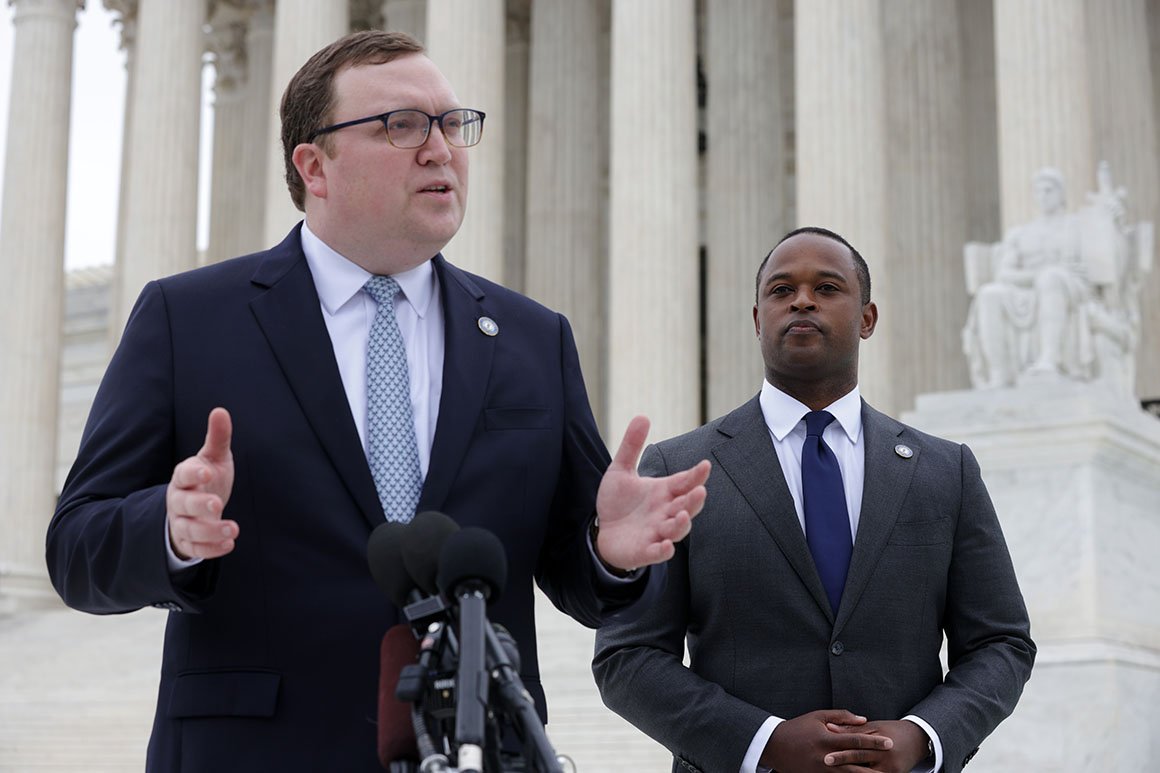Chief Justice John Roberts and Justice Stephen Breyer, along with the court’s more conservative justices, appeared sympathetic to arguments that the attorney general, as an elected official, has the right to join an ongoing legal challenge to one of the state’s laws.
“Do you want to preclude the state from participating?” Roberts asked Alexa Kolbi-Molinas, a senior staff attorney with the ACLU Reproductive Freedom Project, who argued Cameron’s involvement would create a “revolving door,” by allowing state officials back as a party in lawsuits after they’ve already exited.
Roberts suggested that since the state elected a Republican attorney general while the case was working its way through the courts, that new official should have the chance to take a different stance than his Democratic predecessor.
Justices Sonia Sotomayor and Elena Kagan pushed back against those arguments. “We don’t really care what has happened in the political arena. We don’t want to be dragged into it,” Sotomayor said, noting Cameron missed a deadline to appeal, then later sought to intervene in the case.
“The court has held for more than a century that successors stand in the shoes of their predecessors,” Kolbi-Molinas said in an interview afterward. “There isn’t a reset button just because there has been an election.”
The arguments in Cameron v. EMW Women’s Surgical Center stemmed from Kentucky’s 2018 ban on a common method of surgical abortion used after 15 weeks of pregnancy known as dilation and evacuation. The law was signed by the previous Republican governor, Matt Bevin, but has since been blocked by lower federal courts.
The deliberations came as the high court prepares to hear a more high profile and abortion case in December over Mississippi’s 15-week abortion ban that directly challenges Roe v. Wade. Ongoing challenges to a Texas six-week abortion ban that justices allowed to take effect could also come back to the court this year either on an emergency basis or through appeals.
With Congress unlikely to pass a law to protect abortion rights and dozens of conservative states moving quickly to pass many forms of restrictions on the procedure, the court’s rulings this term will decide when, where and how people are able to terminate a pregnancy.
Kentucky Principal Deputy Solicitor General Matthew Kuhn argued state residents want a “failsafe” for situations in which the governor declines to defend laws like abortion bans. “The AG is the agent of the state. We are here on behalf of the state,” Kuhn said.
The audio of Tuesday’s arguments was livestreamed due to pandemic restrictions on attendance.













































